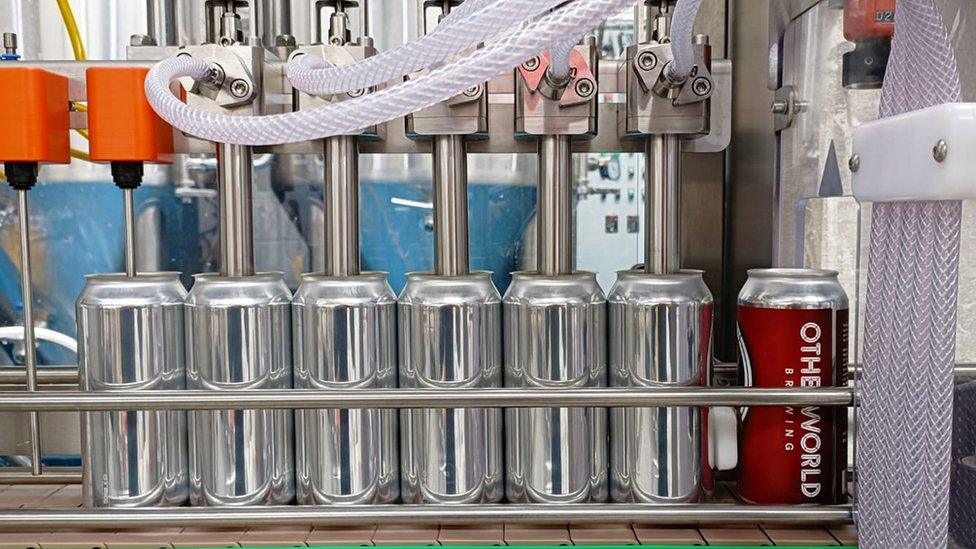National investment bank loses £8m on bottle return scheme
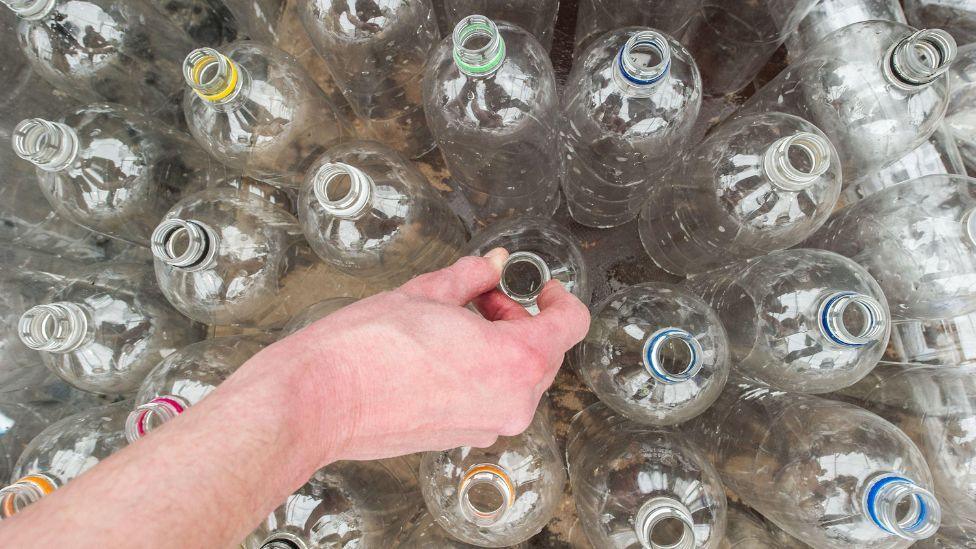
The firm set up to run Scotland's recycling scheme was put into administration last year
- Published
The Scottish Investment Bank made an £8m loss on the government's beleaguered bottle deposit return scheme, it has emerged.
The hit made up the majority of the state-owned bank's £14.6m losses in the past financial year.
However, income increased by more than 80% to £19.3m - exceeding operating costs of £16.1m.
Deputy First Minister Kate Forbes said the operating profit and increased income indicated "a strong performance and increasingly promising future".
The bank's latest annual report, covering the period between April 2023 and March 2024, said the pre-tax loss of £14.6m - down from £20.2m the previous year - was predominantly due to realised and unrealised losses on investments.
This included a full realised loss of £8m on Circularity Scotland Limited - the firm set up to administer Scotland's deposit return scheme.
It called in administrators in June last year following the decision to delay the deposit return scheme to bring it in line with a planned date for a UK-wide scheme.
Former Green minister Lorna Slater - who has since left government after the end of the SNP-Green power-sharing agreement - said she had no choice but to delay the deposit return scheme until 2025 because UK ministers had excluded glass.
However, a Scottish government review from March 2023 reported it was fraught with problems months before the UK government halted it.
In recent months, ministers around the UK have been working on a four-nations scheme - but this has been delayed by two years to October 2027.
'Clear progress'
Scottish National Investment Bank chairman Willie Watt said it had made "clear and demonstrable achievement and progress" in its third full financial year.
"The bank was established to be an impact investor, to drive growth in our economy, provide financial returns on public capital and deliver social impact," he said.
"These are long-term goals and we are operating in a challenging macroeconomic environment, which makes our progress all the more significant."
He highlighted that the bank's income exceeded operational expenses for the first time after year-on-year increases in income.
Mr Watt added: "The bank was conceived as a perpetual institution that would redeploy investment returns for the people of Scotland and we need to make this structure a reality."
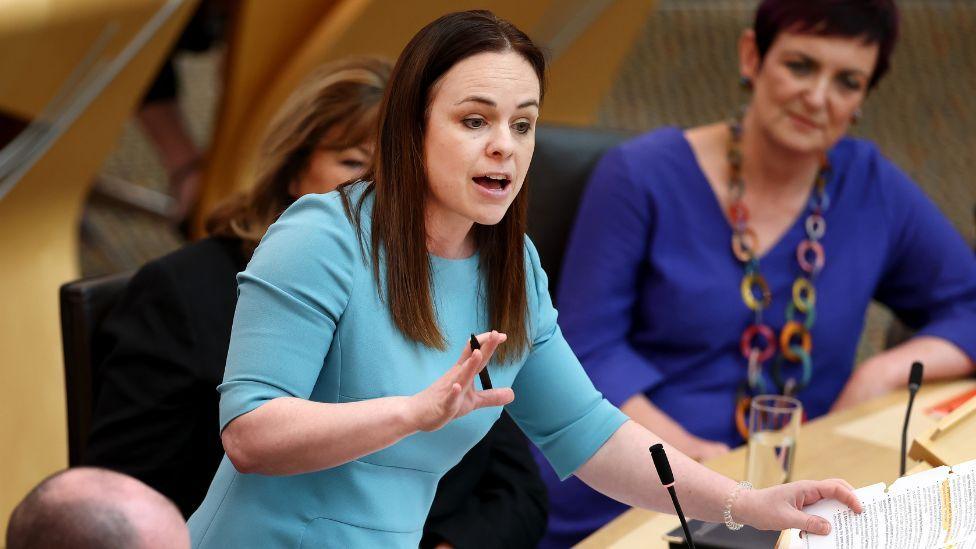
Kate Forbes hailed the "strong performance" of the bank
In the past financial year, the bank committed £224.6m across eight new and 12 "follow-on" investments - where it provides additional investment to an existing portfolio business.
These ranged from £1m to £50m in equity, debt and fund investments.
Ms Forbes said: "Having achieved an operating profit and nearly doubled its annual operating income in only its third full year since opening for business, the figures demonstrate a strong performance and increasingly promising future for the publicly-owned Scottish National Investment Bank.
"The key missions of the bank remain closely aligned to the first minister's priorities, and it continues to make strategically important investments - from green energy to our net zero transformation and high-growth innovation - to help shape a strong, growing and vibrant Scottish economy."
When the investment bank was set up in 2020, ministers pledged to fund it with £2bn over 10 years.
The government said it would drive growth in the Scottish economy by addressing three "grand challenges" facing society: the climate emergency; community inequalities; and the requirement to enhance productivity through greater commercial innovation.
All investments made must deliver against these three missions.
Scottish Labour economy spokesperson Daniel Johnson said: "The Scottish National Investment Bank is a key part of driving growth in Scotland, but these accounts make it clear that it is being financially hobbled by SNP-Green incompetence."
- Published29 June 2023
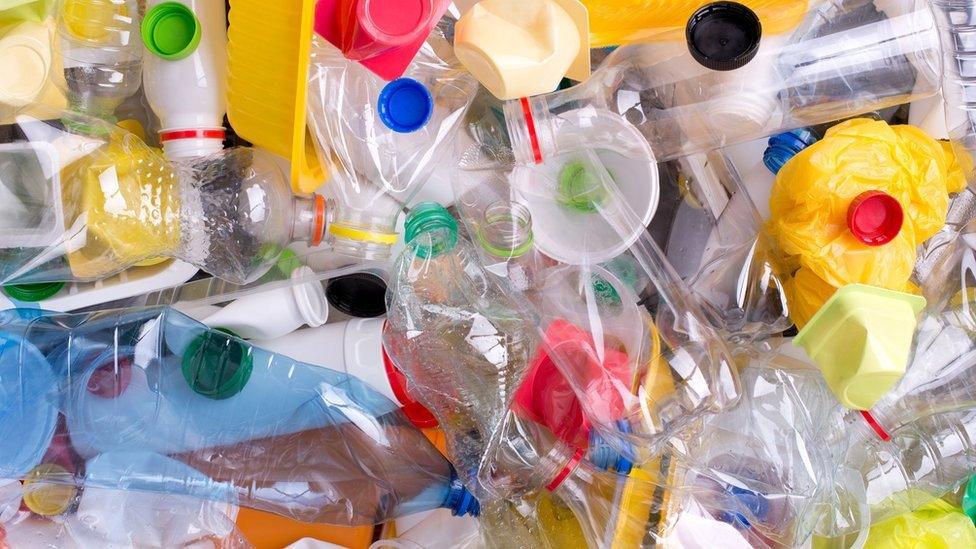
- Published21 June 2023
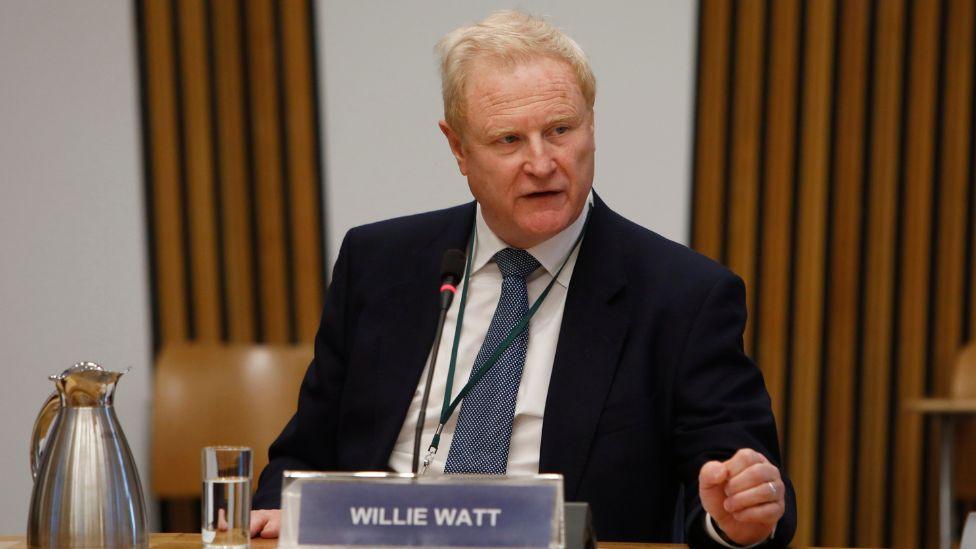
- Published7 June 2023
